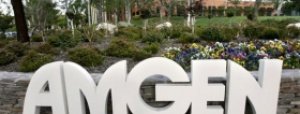The Receptos purchase, by contrast, has the potential to help Celgene diversify quickly away from its blockbuster drug Revlimid, a treatment for multiple myeloma. That way it can add a new drug to its pipeline while waiting for its riskier bets to bear fruit.
«The pace of dealmaking has been torrid," said Michael Yee, an analyst at RBC Capital Markets. The company is «more aggressive than its peers, they take more risks than some others, but that’s been paying off.»
The strategy has been championed by Chief Executive Officer Bob Hugin, a former
«Taking risk is not something you should seek to avoid — taking risk is something you should attempt to achieve every day," Hugin told students last year in a speech at the University of Virginia. «Even at Celgene.»
In its biggest partnership, Celgene said last month that it would pay Juno Therapeutics Inc. about $1 billion as part of a
Final Testing
Besides its size, the Receptos deal is safer than previous partnerships such as the
Celgene and Receptos both surged on Wednesday, with Celgene climbing 9.6 percent to $134.59 and Receptos jumping 10 percent to $228.58 at 11:36 a.m. in New York. The Nasdaq Biotechnology Index rose as much as 2.4 percent, on track to close at a record. Among its top gainers was Arena Pharmaceuticals Inc., which is also developing a drug to treat the autoimmune diseases ulcerative colitis and Crohn’s disease.
Drug Trials
Celgene will wait to see how clinical trials for ozanimod work out before deciding whether to partner with another company to market the drug or use its own sales force, Hugin said in an interview with CNBC.
«I feel better about this than about committing a billion dollars for something like Juno," Porges said. «It’s validated, the path to market is validated.»
If completed, the Receptos acquisition would be the largest deal Celgene has done yet, according to data compiled by Bloomberg.
The Receptos acquisition would be paid for with cash on hand, bank loans and about $5 billion raised through a bond offering, Chief Financial Officer Peter Kellogg said on a call with investors. The company had $7.3 billion in cash and equivalents at the end of last quarter, according to company filings.
Celgene said it expects the acquisition would be dilutive to earnings by 40 cents a share in 2016, neutral to earnings in 2018, and accretive by 2019, based on the sales it expects from ozanimod.
Celgene may have more deals yet to come, Porges said.
«They do a lot more deals than anyone else — they’re taking on significant leverage to finance this," Porges said by phone. «But I certainly wouldn’t rule them out from continuing business development activity.»

